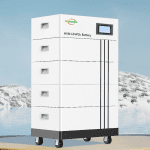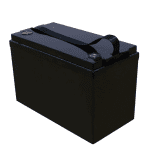We all know that if we want to optimize the performance of a 100Ah energy storage lithium ion battery, one of the factors depends on the electrolyte formula. These 100Ah energy storage lithium ion batteries are at the forefront of advanced energy solutions, with innovations in their electrolyte composition driving improvements in energy density, cycle life, and safety. Regarding the invention of the electrolyte formula, we will use the 100Ah energy storage lithium ion battery as the background to deeply explore and understand this “complex” world.
The critical role of electrolytes in 100Ah energy storage lithium ion batteries
To understand the importance of electrolyte formula innovation, we have to mention the critical role that electrolyte plays in 100Ah energy storage lithium ion batteries. The electrolyte acts as a conductive medium, facilitating the movement of lithium ions between the anode and cathode during charge and discharge cycles. The quality and properties of the electrolyte have a profound impact on the overall performance of the battery, affecting factors such as energy density, efficiency, and longevity. They are the bridge through which lithium ions move between the anode and cathode, and their quality significantly affects battery performance. It must exhibit high ionic conductivity to facilitate fast charging and discharging, excellent thermal stability to prevent overheating, and chemical compatibility with other battery components to ensure long-term reliability.
Enhance electrolyte stability and extend cycle life!
One of the critical innovations in 100Ah lithium ion batteries for energy storage revolves around enhancing electrolyte stability. Traditional liquid electrolytes have safety issues and limited strength. Recent advances include the integration of solid-state electrolytes, polymer electrolytes, and advanced liquid electrolytes. These innovations enable electrolytes to remain stable over a broader range of operating conditions, extending battery cycle life.
Solid electrolytes represent a paradigm shift in lithium ion battery technology. They replaced the traditional liquid electrolyte with a solid material that conducts lithium ions. This innovation has several advantages. Solid electrolytes are inherently non-flammable, reducing the risk of thermal runaway, a critical safety issue for lithium-ion batteries. In addition, they exhibit excellent stability over a wide temperature range, making them suitable for various applications.
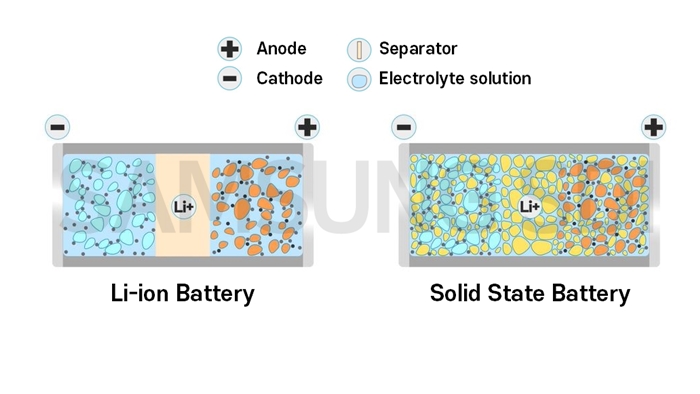
The development of polymer electrolytes is another noteworthy advancement in improving electrolyte stability. These electrolytes are characterized by flexibility and compatibility with various electrode materials. They are inherently safer than liquid electrolytes and can withstand a more comprehensive range of temperatures and mechanical stresses. In addition, they reduce the risk of dendrite formation, which can cause battery short circuits.
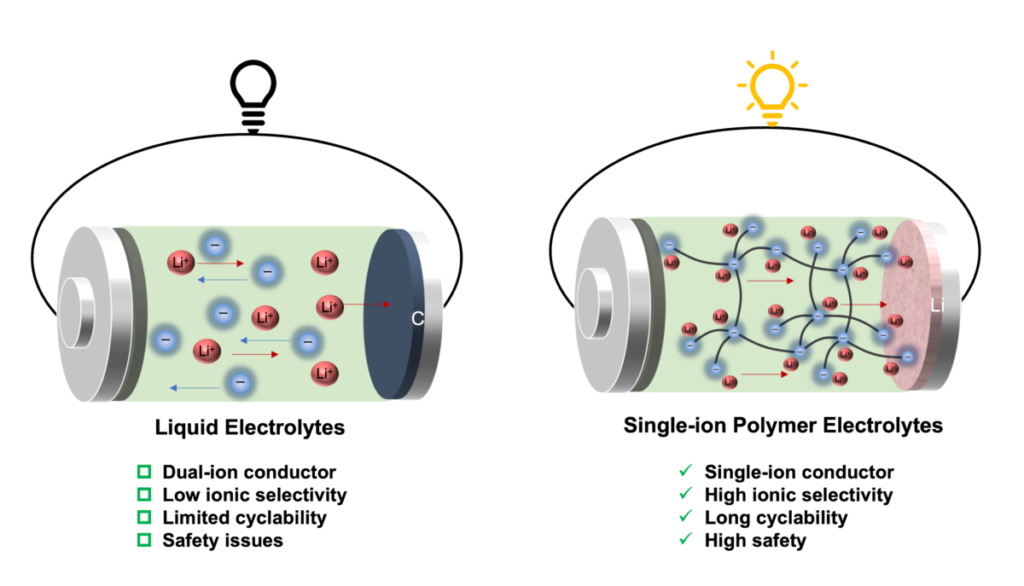
Advanced liquid electrolytes still use a liquid medium but have been improved by adding additives and new solvent compositions. These additives enhance the stability of the electrolyte and its resistance to thermal degradation. In particular, optimizing salt additives helps produce more robust liquid electrolytes.
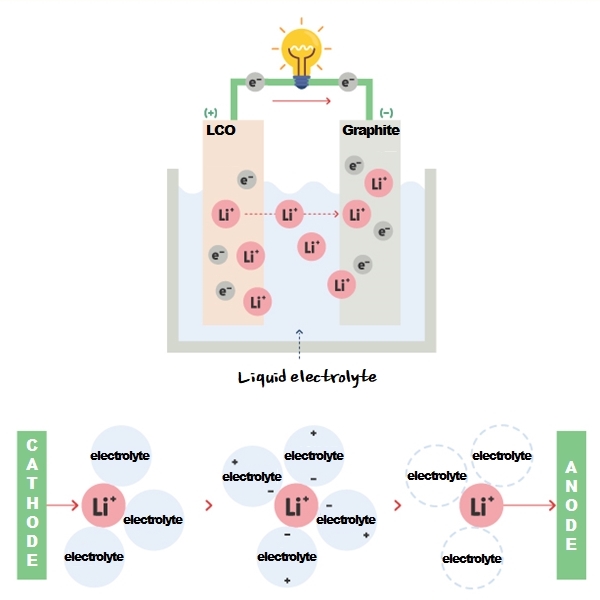
Utilizing highly concentrated electrolytes to increase energy density
Energy density is a fundamental factor in lithium ion batteries, especially in energy storage applications. Notable innovations result in highly concentrated electrolytes that hold more lithium ions in a given volume. The increase in energy density does not require an increase in the physical size of the battery. Using a high-concentration electrolyte allows the 100Ah lithium-ion battery to accumulate more energy in the same space footprint, making it more compact and cost-effective.
Pursuing highly concentrated electrolytes has led to new solvent-salt combinations that dissolve and transport large amounts of lithium ions. These advanced electrolytes can significantly increase energy density without changing the physical design of the battery. As a result, a 100Ah lithium ion battery can provide enhanced energy storage capacity while occupying the same physical space. This development is particularly beneficial for applications where limited space is a limiting factor, such as electric vehicles (EVs) and residential energy storage solutions.
Optimizing electrolyte additives to enhance performance
Electrolyte additives play a crucial role in shaping battery performance. Innovations in this area focus on precisely calibrating additive types and concentrations to enhance specific battery properties. Some additives are targeted at improving the stability of the solid electrolyte interface (SEI) layer, which is critical for long-term performance. Others are designed to reduce unwanted side reactions, such as the formation of lithium dendrites, a phenomenon known to shorten battery life.
The SEI layer is a crucial component formed by electrochemical reactions on the anode surface. This layer is a protective barrier, preventing further reactions between the electrolyte and anode. A stable and robust SEI layer is critical to the long-term performance and cycle life of lithium ion batteries.
Innovations in electrolyte additives have led to the development of compounds that form more resilient and stable SEI layers. This reinforcement layer reduces the risk of further reactions that could decrease capacity and cycle life. Another area of their innovation is the suppression of lithium dendrite formation. Lithium dendrites are tiny needle-like structures that can grow on the surface of lithium anodes during cycling. If left unaddressed, these dendrites can puncture the separator, causing short circuits and potentially catastrophic battery failure.
Impact on charging of 100ah energy storage lithium-ion battery
The desire for fast charging capabilities highlights the need for energy storage applications. Innovations in electrolyte formulations are critical to the battery’s ability to withstand high charge and discharge rates. An advanced electrolyte with improved electrical conductivity and thermal properties enables the 100Ah lithium ion battery to support fast charging without compromising safety or cycle life.
Electrolyte innovations have a direct impact on a battery’s ability to support fast charging. Batteries with enhanced electrolytes exhibit improved ionic conductivity, meaning lithium ions can move faster between the anode and cathode. This increased conductivity is critical to facilitate the high charge and discharge rates required for fast charging. Additionally, innovations in electrolyte additives and ingredients have a direct impact on the battery’s ability to manage high currents. Electrolytes containing carefully designed additives can reduce the risk of side reactions and harmful effects on battery components during fast charging.
Stay on the cutting edge of breakthroughs
By staying at the forefront of these breakthroughs, we at Pcenertech will emerge with more efficient, durable, and secure energy storage solutions to meet the evolving needs of a rapidly changing world. Optimization of the electrolyte recipe is more than just an incremental enhancement; it represents a paradigm shift in lithium ion battery capabilities, opening the door to countless applications and accelerating the transition to a sustainable energy future.If you want to know more articles and company news [https://www.pcenertech.com/], please visit our official website.






